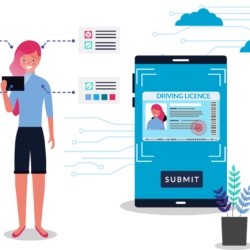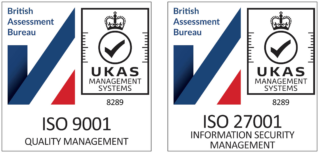Faster Right to Work checks to secure the best talent

Most employers clearly understand the importance of securing candidates who have the Right to Work in the UK. However, in our recent survey, only 60% of organisations say they leverage technology to secure the best talent ahead of the competition.
Over 130 Human Resource, compliance and business professionals responded to our survey in Q4 2022. They answered questions about recruitment challenges and priorities for 2023, the impact of post-COVID changes to Right to Work guidance and whether they were using technology to support their Right to Work checks.
The majority of respondents named their biggest recruitment challenge as the availability of new talent in a competitive market. They therefore also gave their main recruitment priorities as attracting higher quality recruits and improving the candidate experience.
Right to Work checks are a critical step for all employers. Almost all respondents (96%) confirmed that they see RtW checks as essential or very important for their business. However, in a fast-paced market, almost half (46%) reported that RtW checks currently take over a week to perform which means they risk losing new talent to other employers who can act more quickly.
How can technology support onboarding and Right to Work checks?
In 2018, the Home Office published guidance on the use of Identity Document Validation Technology (IDVT) to enhance employer’s pre-employment check processes and minimise their risk of fraud. Since April 2022, Right to Work guidance has also allowed employers to make digital checks using IDVT from an Identity Service Provider (IDSP) for eligible candidates (holders of in-date UK and Irish passports and Irish passport cards).
Most respondents (84%) were familiar with the idea of a third-party IDSP and whilst using a certified IDSP is currently not compulsory, the same number of respondents consider it important to choose one which is certified.
60% of those surveyed said they currently use standalone technology from an IDSP or IDVT integrated with their applicant tracking service (ATS). At the time, a further 17% of respondents were considering using technology for their RtW checks.
In a post-Covid employment environment, many applicants are expecting online experiences which are quick and straightforward, accessible from anywhere. For our customers, using identity validation technology means that Right to Work checks can be done remotely and on the same day as an interview or when an offer is made. This helps them to create a great first impression, onboard them quickly and avoid missing out on their choice of candidate.
Why not read the full results of our latest Right to Work survey here?
Sign up to receive updates
Receive notifications from TrustID direct to your inbox. Simply fill out your email address in the form below.
Want to find out more?
We’d be really happy to chat through your requirements and offer advice on the best service for your business.
Tel: 0118 466 0822 or email us.
Request a callback


